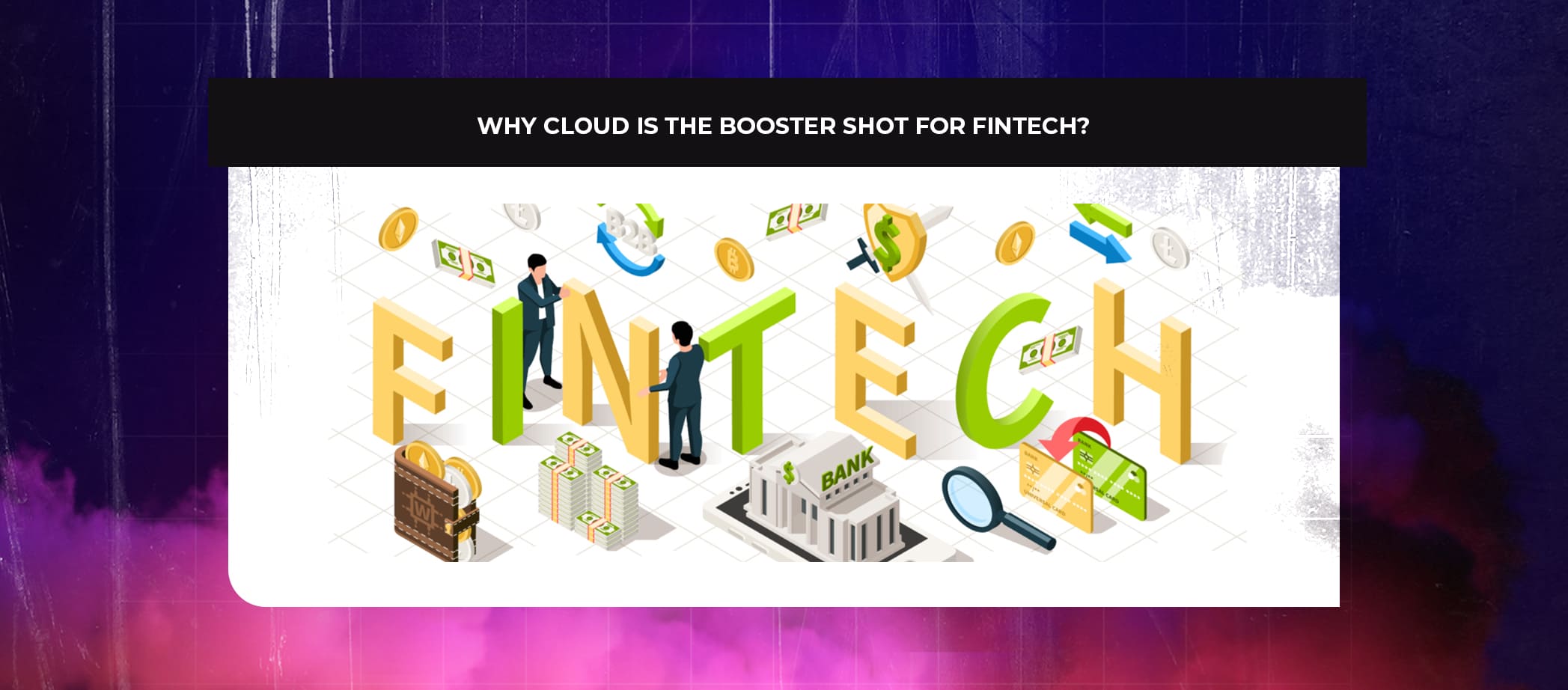Home » Cybersecurity » Cloud Security » How Cloud Computing Affects Fintech?
How Cloud Computing Affects Fintech?

In the fintech industry, Cloud Computing has emerged as a new trend that has greatly impacted the needs of the financial sector and given it a huge potential to expand. Fintech is predicted to have a $124.3 billion global market by the end of 2025, with a compound annual growth rate of 23.84%.
So why is cloud computing so crucial to financial services? Fintech cloud startups and well-established financial institutions are competing to offer their customers and end users digital products and services that are faster, more dependable, and available around the clock. All of this is made possible by cloud computing, which also offers more security at a time when regulatory compliance is growing more demanding.

What is Cloud Computing in Fintech?
Cloud Computing is a key enabler for financial services. It enables businesses in the financial sector of all shapes and sizes to incorporate scalability and flexibility into their business models, enabling them to be agile and remain competitive in a changing market. Additionally, financial companies can use cloud computing to streamline their typically complicated infrastructures, enhance security, and comply with stringent regulatory standards.
Why is Cloud important in fintech?
Organizations need to keep several things in mind to maximize the benefits of cloud computing in finance. Here are some important factors for those participating in the cloud adoption process in the financial services industry:
Access control and encryption
When it comes to cloud computing for financial services, your preferred cloud provider should also be able to provide strong access control and data encryption regulations. Asking a provider how these policies will apply to your particular use cases can help you choose one that will successfully protect all of your financial data.
Also Read: Why Cloud is The Booster Shot For Fintech?
Demonstrable compliance
Stakeholders in the financial organization should ask cloud providers for documentation of their compliance, such as certifications for the ISO 27001 Information Security Management System, the ISO 22301 Business Continuity Management System, and the PCI: DSS Payment Card Industry Attestation.
Disaster recovery
Any cloud infrastructure must have a reliable disaster recovery strategy. It is crucial to comprehend how the disaster recovery plan will operate once it is implemented by your company because every cloud provider that is worth working with will have one.

Guide to Choosing a Cloud Consulting Company
Impact of the Cloud on the Financial Sector
A high level of data management
Data is essential to the financial services sector. It is essential to a wide range of tasks, from routine account management to confirming users’ identities, showing balances, and analyzing spending habits. Cloud computing enables fintech businesses to store, manage, and access enormous volumes of data safely, affordably, and independently, from any location and at any time.
Accelerated innovation
The fintech sector’s innovation has been boosted by the agility that cloud computing has provided to the sector. Cloud technology enables financial organizations to build their goods and promote them more swiftly while also enabling them to respond quickly to shifting customer demands and developing trends.
Enhanced security
In the age of high-profile data breaches and cyber security threats, Customers are growing more concerned with how their data is secured. The financial services industry must protect customer data, and the cloud is improving how financial organizations accomplish this. Cloud computing in the financial services industry is reducing many of the hazards that traditional on-premises IT infrastructures pose, including data encryption, zero trust verification, and access control.
Greater scalability
Fintech enterprises frequently experience rapid expansion, and these businesses need infrastructures to assist their growth rather than hinder it. Due to fast-growing customer bases and the digitization of traditional banking services financial institutions frequently need to store extra resources in the cloud, which is much more cost-effective than upgrading or expanding conventional on-premises infrastructure.

Also Read: Are Cloud Computing Solutions Worth Putting Into Practice?
The future of cloud-based Financial services
The financial services industry has changed how customers interact with their products and services over the past few years, thanks to factors like the rising demand for big data, adapting to stricter regulations, and an increase in the number of smaller players challenging long-established financial institutions. We may anticipate a lot more innovation from the industry in the near future.
Additionally, we can anticipate several changes as a result of the effect of cloud computing, such as predictive modeling to prepare for “what if” scenarios, automation of front-end sales and customer-facing settings, and improved customer care through self-service functionality.
Are you looking to hire Cloud Engineers to help your company grow?
Well, PeoplActive not only brings the ideal talent but also provides consultation services on your projects to help you create a roadmap. Please let us know if you need to recruit Cloud Engineers.
Hire Top-tier Cloud Talent
The post How Cloud Computing Affects Fintech? appeared first on PeoplActive.
*** This is a Security Bloggers Network syndicated blog from PeoplActive authored by Dariel Marlow. Read the original post at: https://peoplactive.com/cloud-computing-affecting-fintech/





